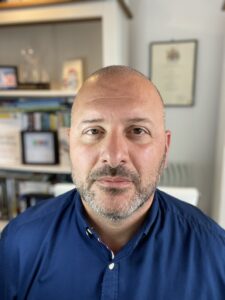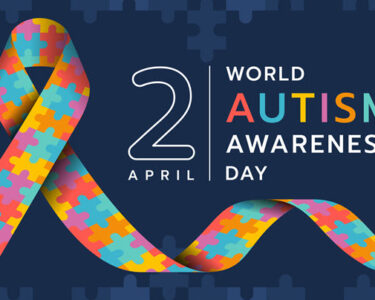
‘In 2020 I took on the mantle of President of the School Library Association (SLA). It was an unexpected and truly special honour to be invited to follow the celebrated author and illustrator, Chris Riddell, in this role.
When I accepted, my pledge was to raise the profile of the importance of school libraries in the education sector and at policy level. We have heard so much over the last few years about the digital divide (the gulf between those who have ready access to computers and the internet, and those who do not), and rightly so. Technology has never been more important for education during the restrictions and lockdowns we’ve faced in the UK during the pandemic.
However, it’s also become clear, that there is an analogue divide. I first heard this concept used by the brilliant education journalist J.L. Dutaut. The analogue divide notes that there is a gulf between those who have ready access to physical books and printed learning materials and those who do not.
In both cases, it is poorer, more disadvantaged communities who do not have access to these things. The long-term effects in education and for young people’s futures are hugely detrimental.
When I was a child, I had access to piles of books, old and new. My favourites being the Ladybird Histories and Enid Blyton’s Secret Seven. When I visited my grandparents, they too had shelves of books and it’s where I discovered my passion for art. I used to paw through my grandfather’s collection of books on artists like Hockney and catalogues from The Royal Academy Summer Exhibitions.
Looking back, I now realise how fortunate I was to access something so important as books. When I became Headteacher of Grange School, one of the first things I did was to help create a fantastic library and appoint and train an amazing librarian. It had a profound impact on our students and their families.
In November 2021, the National Literacy Trust https://literacytrust.org.uk published a major report into the provision of libraries in England’s primary schools, here are some of the findings:
- There is no government requirement for schools to have a library
- A quarter of disadvantaged primary schools in England do not have a library
- 40% of primary schools reported having no dedicated school library budget
- For the 1 in 11 children growing up without any books at home, school is often the first opportunity for children to discover the magic of reading
- Due to small budgets, some teachers buy books from charity shops out of their own pocket
- COVID-19 has affected the most disadvantaged pupils’ access to books
- Many existing school libraries lack quality inclusive and representative books
- Reading for pleasure is proven to positively impact young people’s mental wellbeing and academic attainment
Food for thought in Secondary schools too.
One of my other inaugural pledges was to help promote the need for significant training to support schools and teachers when teaching young people more about information literacy, misinformation, bias, and fact.
The events of the last thirty years, fuelled by the explosion of social and digital media have led us to live in very dangerous times. Some very powerful people have used new technologies as weapons to drive anger, division, and influence. Their use of analytics, bots, AI, and other techniques have had a major influence on all our lives.
Today we are seeing the horrific results of a dictator who has manipulated so many for years and who is now exploiting the chaos he has reaped.
We need to reflect now and not allow future generations to head into the world without a greater understanding of the virtual world and how they can seek truth and avoid sophisticated manipulation.
Education must be a central part of the answer. Globally, we need to ensure that we place the knowledge, skills and awareness needed to counter this significant and growing evil at the heart of our curriculum.
When Google was founded by Sergei Bryn and Larry Page, they did so to find a way to democratise information under the belief that if you could stop the powerful controlling that information you could create greater freedom. Their founding vision was:
To organise the world’s information, to make it accessible to everybody and by so doing, diminish evil.
Whether they have succeeded or even done it in the right way is possibly a debate to be had, but the sentiment is one I passionately support.
Whether we work in primary or secondary education, special education or with adults, literacy in all its forms, has never been more central to our work. Literacy and access to libraries are a beacon of hope, of possibility, of a better future. In an era where so many feel disenfranchised, overlooked, and not heard, we must all work harder to ensure that literacy isn’t just a path to exams, or academic achievement but a meaningful tool at the heart of aspiration, empowerment, and the optimism that there is a brighter future. It is why I was honoured to write this blog and to show my support for the incredible work The Centre for Holocaust Education has done and continues to do. It is an exemplar of what is needed and how together we can make it happen, for all children, everywhere. In the resonant words of Kofi Annan,
Literacy is a bridge from misery to hope.’
Dr Richard Gerver,
President School Library Association




